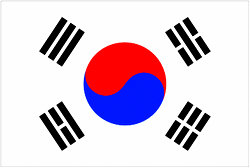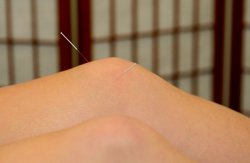 Acupuncture after laparoscopy reduces the time to discharge for patients who have undergone the procedure plus anaesthetic. Research teams based in Germany and Switzerland, randomly allocated 75 women to receive either acupuncture with standard anaesthetics, acupressure, or standard anaesthetics alone.
Acupuncture after laparoscopy reduces the time to discharge for patients who have undergone the procedure plus anaesthetic. Research teams based in Germany and Switzerland, randomly allocated 75 women to receive either acupuncture with standard anaesthetics, acupressure, or standard anaesthetics alone.
In the acupuncture group, median time to discharge was 35% shorter than in the standard anaesthetics alone group. It was also shorter than in the acupressure group. Median time to removal of the endotracheal tube was 7 minutes shorter in the acupuncture and acupressure groups, compared with the standard anaesthetics alone group. The researchers point out that modern surgery management requires increasing operating theatre turnover and more ambulatory procedures. Post-anaesthetic recovery therefore needs to be optimised, and further work should be encouraged to consider a role for acupuncture.
(Acupuncture reduces the time from extubation to “ready for discharge” from the post anaesthesia care unit: results from the randomised controlled AcuARP trial. Scientific Reports, 24 October 2018.)

 A team of researchers in Turkey looking at the possibilities of acupressure for nausea and vomiting after gynaecological surgery, have concluded it represents a viable alternative to drugs. They randomised 97 women to receive either standard drugs during and after surgery, or to receive acupressure to the point Neiguan using a wristband. The latter was left in place during the first 12 hours following surgery.
A team of researchers in Turkey looking at the possibilities of acupressure for nausea and vomiting after gynaecological surgery, have concluded it represents a viable alternative to drugs. They randomised 97 women to receive either standard drugs during and after surgery, or to receive acupressure to the point Neiguan using a wristband. The latter was left in place during the first 12 hours following surgery.  A systematic review by Korean authors looking at acupuncture for menstrual pain shows it is an effective intervention. The review examined 60 randomised controlled trials covering over 3000 patients; 49 trials were subject to meta-analysis. The studies compared acupuncture to no treatment, placebo or medication.
A systematic review by Korean authors looking at acupuncture for menstrual pain shows it is an effective intervention. The review examined 60 randomised controlled trials covering over 3000 patients; 49 trials were subject to meta-analysis. The studies compared acupuncture to no treatment, placebo or medication.  A Cochrane Database systematic review by Australian authors, has concluded that acupuncture and acupressure may improve both physical and psychological symptoms of PMS. Five trial results, covering 277 women, were analysed. The results suggest acupuncture can improve overall mood and physical symptoms, compared with sham acupuncture. Quality of evidence was limited by small sample sizes.
A Cochrane Database systematic review by Australian authors, has concluded that acupuncture and acupressure may improve both physical and psychological symptoms of PMS. Five trial results, covering 277 women, were analysed. The results suggest acupuncture can improve overall mood and physical symptoms, compared with sham acupuncture. Quality of evidence was limited by small sample sizes. A large American trial has shown that acupuncture can help postmenopausal women with breast cancer, who experience joint pain (arthralgia) as a side-effect of taking aromatase inhibitor drugs eg anastrozole/arimidex. Researchers randomised 226 such women, mean age 61, across 11 academic centres and clinics, to either true acupuncture, sham acupuncture or a waiting list control. Real or sham acupuncture was given twice a week for 6 weeks, then once a week for a further 6 weeks. All patients were followed up for a further 12 weeks.
A large American trial has shown that acupuncture can help postmenopausal women with breast cancer, who experience joint pain (arthralgia) as a side-effect of taking aromatase inhibitor drugs eg anastrozole/arimidex. Researchers randomised 226 such women, mean age 61, across 11 academic centres and clinics, to either true acupuncture, sham acupuncture or a waiting list control. Real or sham acupuncture was given twice a week for 6 weeks, then once a week for a further 6 weeks. All patients were followed up for a further 12 weeks.